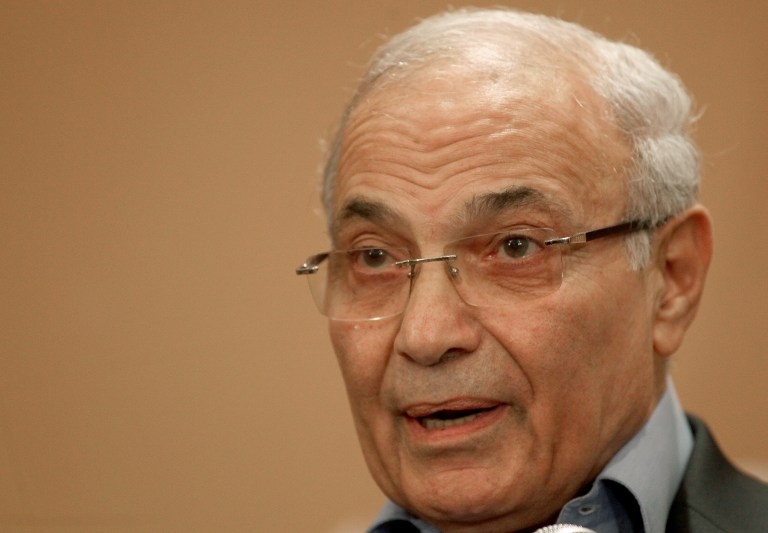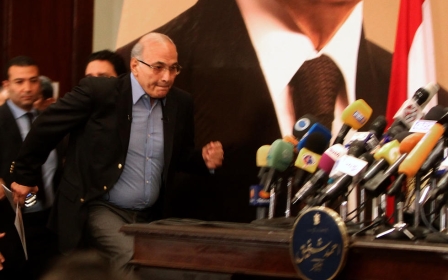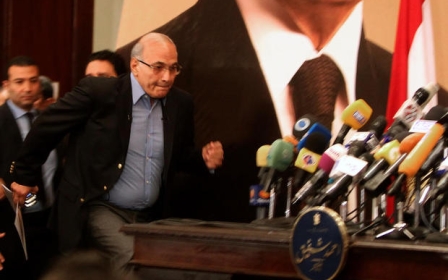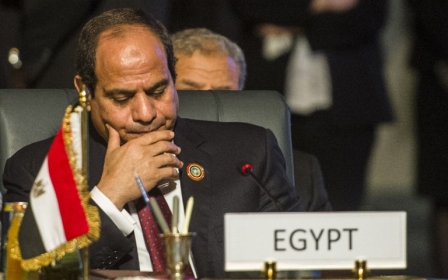Former presidential candidate lashes out at Sisi government

Egyptian officials have barred a popular talkshow, The Black Box, from broadcasting two episodes featuring former presidential candidate Ahmed Shafik. In the episodes, Shafik reportedly reveals the reasons behind his exile in the UAE, local papers said on Wednesday.
A fiery promo of the episodes that were planned to air on satellite television channel, The Capital, were circulated across social media by the anchor of the show Abdel Rahim Ali on his Facebook page, Egypt’s Al-Shurouk newspaper reported.
During the interview with Ali, Shafik said - in what observers considered to be messages directed at the military government in Egypt - that he “possessed documents which could easily implicate anyone who attempts to silence those who speak up for their country”, reported Arabi21.
In the promo, Shafik alleged: “I know more than the intelligence services do. It’s better if everyone keeps their mouth shut so that I do too. No one can dare tell me not to run for parliament.”
Also in the promo, Shafik said: “A fighter does not give his enemies the chance to get rid of him,” when asked about the reason behind his stay in the UAE instead of returning to Egypt.
Shafik had previously cited “security reasons” for his continued residence in the UAE. This was despite heading a political party, the Egyptian National Movement Party, from exile.
After reviewing the content of the episodes, Egyptian officials barred the satellite channel from broadcasting the programme since Shafik had reportedly disclosed why he fled, said Arabi21.
Ali also removed the promo from his Facebook page and reportedly refused offers by other satellite channels to broadcast the episodes, reported Arabi21.
Simmering tensions
Simmering tension among Egypt's ruling elite broke out into the open in May when the government reportedly warned Shafik not to return from exile in the UAE or consider any future role in Egyptian politics.
Al-Shurouk newspaper quoted a government source at the time telling Shafik to “forget about” playing any role in politics, and accusing him of seeking to destabilise the “legitimacy of elected president Sisi”.
Shafik, who lost the presidential elections to Mohamed Morsi in 2012, fled the country in the same year after Egypt's prosecutor-general opened an investigation into allegations of corruption when he was an official under former president Hosni Mubarak, who was toppled following the 2011 uprising.
He has remained in the UAE, despite a military coup that overthrew Morsi on 3 July 2013 and in spite of being acquitted of corruption charges in December that year, which paved the way for his return free from legal questioning.
Shafik belongs to the same military political camp, which has ruled Egypt since 1952, as the current president Abdel Fattah al-Sisi. Now Sisi appears to view Shafik as a rival who is conspiring to undermine his presidency.
The deepening rift between Shafik and the Sisi government has been highlighted by analysts as a possible source for a series of leaked audio tapes that have been used to implicate Sisi.
The interview comes ahead of a visit by Sheikh Mohammad Bin Zayed Al Nahyan, Crown Prince of Abu Dhabi and Deputy Supreme Commander of the UAE Armed Forces, to Sisi on Tuesday.
While most papers reported the visit as one of discussing regional issues, observers have pointed towards the meeting as a continuation of a series of attempts by Egypt to seek the UAE's support in silencing Shafik.
According to Arabi21, Egyptian papers reported that intelligence chiefs have visited the UAE to discuss means to silence Shafik and his public statements.
Middle East Eye propose une couverture et une analyse indépendantes et incomparables du Moyen-Orient, de l’Afrique du Nord et d’autres régions du monde. Pour en savoir plus sur la reprise de ce contenu et les frais qui s’appliquent, veuillez remplir ce formulaire [en anglais]. Pour en savoir plus sur MEE, cliquez ici [en anglais].




